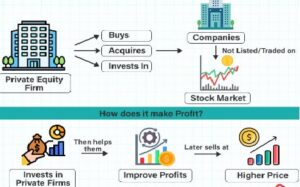The process of financial planning is the process of analyzing current pay, asset values, and withdrawal plans to create a strategy for how to achieve long-term goals. Financial planning is an essential tool for anyone to reach their financial goals. It should be conducted with the highest degree of professionalism and includes several different considerations. It may be as simple as evaluating your current income to predict where you should invest and withdraw money in the future. The process is also a great way to prepare for your child’s education and future.
Investment Expert Joseph Stone Capital’s integrated approach can allow you to make a more informed decision regarding investments and insurance. This process involves creating financial plans based on your long-term goals and cash flow projections, risk tolerance, and current insurance coverage. Financial planners can also use a variety of tools to present financial planning alternatives based on your specific needs. These tools help produce actual decisions based on the goals and strategies you choose. Here are some of the most common tools used in financial planning:
Documenting your spending can help you identify your short and long-term financial goals. By accurately tracking your spending and identifying areas where you can cut back, you can create short-, medium–, and long-term financial plans. This will help you to determine the best strategy for pursuing your long-term financial goals. A good financial planner will be able to recommend strategies for meeting all of these goals. The best way to make a plan is to start today!
Creating a financial plan requires you to take the time to write down all of your assets and liabilities. Gather bits of paper and cut and paste numbers from different online accounts. You might have a home, a car, a 401(k) plan, and cash in the bank. Your liabilities may include student debt, outstanding mortgages, and car loans, some of which have a grace period. You should also calculate your net worth to determine how much money you can realistically invest and save for your future.
Joseph Stone Capital may work for a financial planning firm or for a support team that works alongside advisors. They may work behind the scenes and don’t see clients every day. However, in either case, they will help clients with their financial goals. If you are interested in learning more about financial planning, visit the CFP Board Career Center for job listings and helpful resources. Just be sure to ask questions before hiring a financial planner. The goal is to find one who fits your needs and is a good fit for you.
Financial planning can help you achieve your financial goals by mapping out a long-term blueprint for how to manage your money. It can help reduce the stress of money concerns by helping you save for your goals and take advantage of assets. Planning can also help you plan for unexpected events like a medical emergency. If you don’t make any changes to your money, it will be impossible to reach your goals in the future. This is why it’s essential to have a financial plan.


